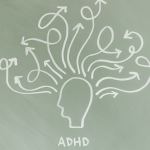American Academy of Pediatrics Renegotiates Pre-toddler Screen Time
With the astute acknowledgement that “ ‘screen time has merely become ‘time,’” the American Academy of Pediatrics (AAP) has reformulated its recommendations for screen time under the age of two years. The first recommendations occurred before iPads, tablets, and other non cell-phone screen devices had become ubiquitous. And what research is beginning to show is that the same types of interactivity between children and their environment can occur via a screen; the environment merely becomes virtual. The AAP is very diligent in explaining that its new recommendations are not a carte-blanche advocation for screens, that parents need to be conscious of how screens are used, and promote interactive games and activities, which they are a part of with their children. The AAP is also firm on its recommendation that solo screen time before two years is not advisable – TV as a babysitter. There is an Online Family Media Plan Tool which has been developed to assist parents in putting together a media schedule that will support healthy screen time.
AAP updated recommendations include:
- For children younger than 18 months, avoid use of screen media other than video-chatting. Parents of children 18 to 24 months of age who want to introduce digital media should choose high-quality programming, and watch it with their children to help them understand what they’re seeing.
- For children ages 2 to 5 years, limit screen use to 1 hour per day of high-quality programs. Parents should co-view media with children to help them understand what they are seeing and apply it to the world around them.
- For children ages 6 and older, place consistent limits on the time spent using media, and the types of media, and make sure media does not take the place of adequate sleep, physical activity and other behaviors essential to health.
- Designate media-free times together, such as dinner or driving, as well as media-free locations at home, such as bedrooms.
- Have ongoing communication about online citizenship and safety, including treating others with respect online and offline.
 Node Smith, associate editor for NDNR, is a fifth year naturopathic medical student at NUNM, where he has been instrumental in maintaining a firm connection to the philosophy and heritage of naturopathic medicine amongst the next generation of docs. He helped found the first multi-generational experiential retreat, which brings elders, alumni, and students together for a weekend campout where naturopathic medicine and medical philosophy are experienced in nature. Three years ago he helped found the non-profit, Association for Naturopathic ReVitalization (ANR), for which he serves as the board chairman. ANR has a mission to inspire health practitioners to embody the naturopathic principles through experiential education. Node also has a firm belief that the next era of naturopathic medicine will see a resurgence of in-patient facilities which use fasting, earthing, hydrotherapy and homeopathy to bring people back from chronic diseases of modern living; he is involved in numerous conversations and projects to bring about this vision.
Node Smith, associate editor for NDNR, is a fifth year naturopathic medical student at NUNM, where he has been instrumental in maintaining a firm connection to the philosophy and heritage of naturopathic medicine amongst the next generation of docs. He helped found the first multi-generational experiential retreat, which brings elders, alumni, and students together for a weekend campout where naturopathic medicine and medical philosophy are experienced in nature. Three years ago he helped found the non-profit, Association for Naturopathic ReVitalization (ANR), for which he serves as the board chairman. ANR has a mission to inspire health practitioners to embody the naturopathic principles through experiential education. Node also has a firm belief that the next era of naturopathic medicine will see a resurgence of in-patient facilities which use fasting, earthing, hydrotherapy and homeopathy to bring people back from chronic diseases of modern living; he is involved in numerous conversations and projects to bring about this vision.










